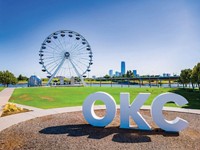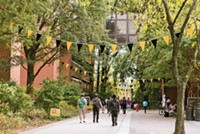Advertisement
Grab your lab coat. Let's get started
Welcome!
Welcome!
Create an account below to get 6 C&EN articles per month, receive newsletters and more - all free.
It seems this is your first time logging in online. Please enter the following information to continue.
As an ACS member you automatically get access to this site. All we need is few more details to create your reading experience.
Not you? Sign in with a different account.
Not you? Sign in with a different account.
ERROR 1
ERROR 1
ERROR 2
ERROR 2
ERROR 2
ERROR 2
ERROR 2
Password and Confirm password must match.
If you have an ACS member number, please enter it here so we can link this account to your membership. (optional)
ERROR 2
ACS values your privacy. By submitting your information, you are gaining access to C&EN and subscribing to our weekly newsletter. We use the information you provide to make your reading experience better, and we will never sell your data to third party members.
Meetings
73rd Northwest Regional Meeting
by Linda Wang
May 4, 2018
| A version of this story appeared in
Volume 96, Issue 19

73rd NORM at a glance
▸ Dates: June 24–27
▸ Location: Pacific Northwest National Laboratory
▸ Information contacts: Ram Devanathan, ram.devanathan@pnnl.gov, Vanda Glezakou vanda.glezakou@pnnl.gov, program chairs
▸ Website: norm2018.org
The ACS Richland Section will host the 73rd Northwest Regional Meeting (NORM 2018) at Pacific Northwest National Laboratory (PNNL) in Richland, Wash., on June 24–27. The general chairs are Anna Cavinato of Eastern Oregon University and Dave Heldebrant of PNNL. The program chairs are Ram Devanathan and Vanda Glezakou of PNNL.
Technical program. The meeting’s theme is “Energy, Environment & Education.”
Programming is divided into tracks. The Environmental & Green Chemistry track, for example, will focus on mineral organic interfaces in the environment, atmospheric chemistry, and materials and fluids for fossil and geothermal energy applications.
The Chemistry Education & Outreach track will feature a symposium honoring the legacy of Jane and Glenn Crosby in chemical education and their dedicated service to ACS. This track will also celebrate the 50th anniversary of the ACS Project SEED program.
The High School Teachers Program track will include oral presentations on precollege science education, and the Undergraduate Program track will feature posters from undergraduate students and their advisers.
In the Physical & Computational Chemistry track, computational chemists can participate in a free tutorial on the NWChem software for computational chemistry.
The Chemical Safety track will highlight the essential role of safety in chemistry, including problem selection, experimental design, scale-up, and ultimate application. This track will explore the various ways safety needs to be considered in the chemical enterprise.
For those interested in business and entrepreneurship, the Innovation track will help participants navigate the value chain from idea generation to commercialization.
Awards that will be presented include the ACS Division of Chemical Education Glenn and Jane Crosby Northwest Region Award for Excellence in High School Teaching, the E. Ann Nalley Northwest Regional Award for Volunteer Service to ACS, and the Partners for Progress and Prosperity Award. The awards banquet will take place on Tuesday, June 26.
Workshops. The “Career Pathways” workshop will guide attendees through the application process for jobs in industry, academia, and government. It will also cover options for self-employment. For those looking for their first job or making a career transition, the “Personal Career Consulting” workshop will offer tips on creating a résumé, information on improving your interviewing skills, and techniques for salary negotiation.
If you are learning electrochemistry or incorporating it into your analytical, inorganic, or even environmental chemistry curriculum, the “EChem in a Box” workshop will go over fundamental concepts of electrochemistry. There will be a short, hands-on lab using the WaveNow potentiostat with screen-printed electrodes. Please bring a Microsoft Windows laptop with a USB port.
In the workshop “Advocating for Science: How to Communicate with Your Elected Officials,” experts will role-play various scenarios to help attendees practice their approaches to communicating clearly about issues facing chemistry and gaining support from policy-makers.
Social events. A poster session with a networking social event will take place on Sunday, June 24, and help kick off the exposition, which will run through Tuesday. Other social events include an undergraduate breakfast, a sunset hike up Badger Mountain hosted by the Younger Chemists Committee, a tour of the Environmental Molecular Sciences Laboratory at PNNL, a lecture by Mas Subramanian of Oregon State University, the Senior Chemists breakfast, the Women Chemists Committee networking luncheon, a wine science networking social, and a regional awards banquet.
Advertisement
Attendees can also participate in a tour of the B Reactor National Historic Landmark—the world’s first full-scale plutonium production reactor created as part of the top-secret Manhattan Project during World War II—or a tour of the Laser Interferometer Gravitational-Wave Observatory (LIGO), where the universe’s gravitational waves were observed for the very first time.
Lodging and registration. Early-bird registration for the meeting ends on May 21, but registration is available on-site through the end of the meeting. Reduced rates for a room at the Red Lion Richland Hanford House or the TownePlace Suites Richland are available until June 2. For more information about the meeting, visit norm2018.org.




Join the conversation
Contact the reporter
Submit a Letter to the Editor for publication
Engage with us on Twitter